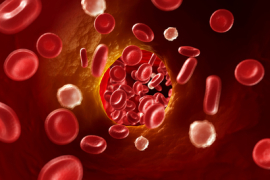A large longitudinal study in Sweden has found that people who respond well to periodontal disease treatment are less likely to experience cardiac events than people who did not respond well to treatment. The study was published in the Journal of the American College of Cardiology.
The research team examined more than 5,000 patients a year after they underwent periodontal disease treatment. They divided the patients into two groups based on remaining pocketing depths and bleeding on probing:
“Non-responders were defined as having more than 20% remaining pockets ≥5mm deep and bleeding on probing (BOP) ≥ 20% one year after active treatment.”
Over a period of more than 16 years, the “non-responder” group had a 21% increased risk of cardiovascular disease when compared to the group that responded well to treatment. The increased risk jumped to 28% after adjusting for age, sex, education level, smoking, and baseline values for bleeding on probing, pockets ≥5mm, attachment loss, and number of teeth.
It appears that when a patient responds well to periodontal treatment, he or she is significantly less likely to experience a cardiovascular event, such as heart attack or stroke.
Every patient is different, and each person responds differently to treatment. Genetics, stress, and lifestyle factors all play confounding roles in the progression of periodontal disease and can therefore have an effect on treatment success. Addressing oral inflammation, microbial burden, and subsequent health risks is an ongoing battle that should be undertaken by a coordinated care team of medical and dental professionals. Now, more than ever, it is time to open communications and work together to reduce the effects of oral health on patients’ overall health.



